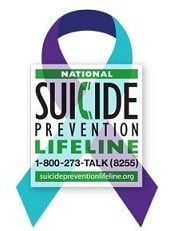- Lose the idea that anger is a natural part of all relationships. Unreasonable anger and rage are not a natural part of anything. Upsets and hurt feelings occur between couples and in families. Uncontrolled rage can lead to physical, sexual and/or emotional abuse. Anger is not an aphrodisiac—it is an obstacle to healthy living.
- Anger isolates you from others, because the average fellow human being doesn’t want to be around someone whose emotions are unpredictable or volatile. It’s unhealthy to be angry often and being isolated as a result of the anger is not healthy, either.
- Constant states of anger muddle your thinking so that you don’t always make good, prudent and healthy decisions. Think of any mental upset, like depression, grief, euphoria, etc. Extreme emotional states can blind us from common sense.
- Anger kills. It kills friendships, it kills relationships, it kills families, and it can lead to physical harm. Kill the anger if you want to lead a happy, healthy life. People can help you.
- Intense anger is stressful. Your mind is not at peace. Anger can negatively impact your health because of the upset and constant state of agitation. It can lead to heart problems, sleep abnormalities and even substance abuse. It also zaps your energy leaving you physically and emotionally empty. All these things can shorten your life.
- If you are constantly angry, it’s safe to assume that those who interact with you willingly are probably angry, too. Remember, those who don’t live by anger will want to avoid you. So, if you find yourself in the company of others equally as angry as you, you are only reinforcing such destructive behavior, drawing yourself deeper and deeper.
- Anger prevents you from seeing solutions to problems because you are fixating on emotion instead of making things right. And, if you’re angry, you are probably not going to be able to interact with others in such a way that resolves any issues. Getting stuck in the “mad” mode doesn’t benefit you or those around you.
- Anger can have a cycle of outburst, injury to others, guilt and remorse. If you lose your temper with someone (often a family member), you hurt them emotionally and possibly physically. That can lead to your feeling guilty, which is followed by attempts to “make up” for it. However, remember this is a cycle. It will repeat again. Professionals can help free you from this emotional and damaging loop of events.
If you (and/or someone you care about) need help resolving your out-of-control anger issues, please reach out to Tracy Crain.






